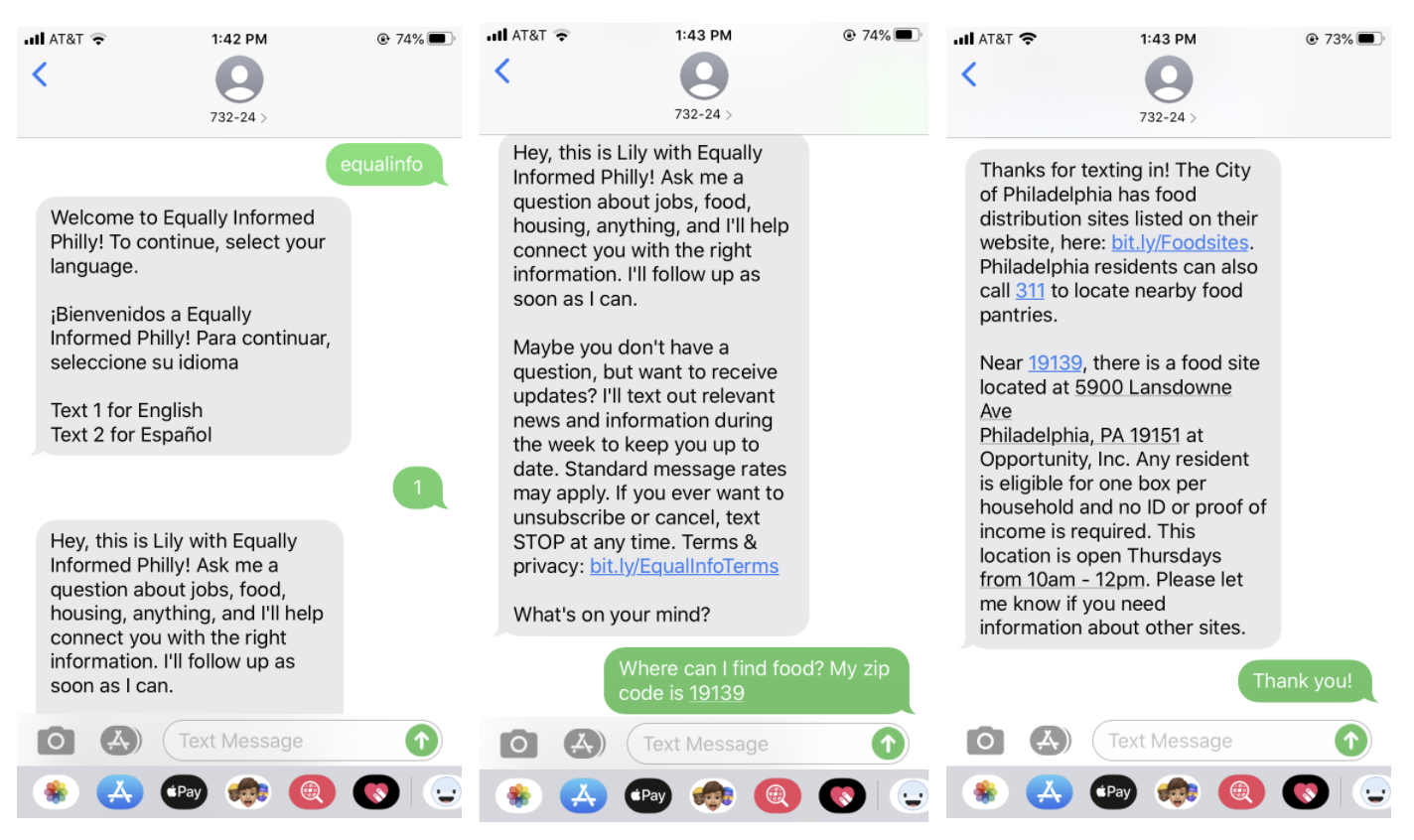
Philadelphia’s city government spent a lot of time during the pandemic trying to understand who did, and did not, have access to high-speed internet.
Just 84% of Philadelphia households are connected to the internet at all, a lower rate than that of other large U.S. cities. And adults over the age of 65 are less likely to have access, one survey found.
So it isn’t surprising that so many of the subscribers to the Equal Info Text Line are senior citizens. The Equal Info Text Line was borne out of the need for information and resources at the beginning of the Covid-19 pandemic and grew as information needs around the 2020 presidential election became more apparent. It’s an initiative by the nonprofit Resolve Philly, which started through a collaborative reporting project in Philly between 13 news outlets in the city in 2017.
“You can ask us anything about living and thriving in Philly,” said Kristine Villanueva, the editor of Equally Informed. “We, as real people, will respond to you. That’s the distinction between this kind of service and 311, which is very inaccessible and crashes often. We’re not putting you through an automated service. You’re actually interacting with [editorial associates] Lily and Gabriela.”
Users can text EQUALINFO to 73224 and then start asking all their Philly-related questions via SMS. The text line is anonymous, only asking users for their ZIP codes and whether they want to text in English or Spanish. From there, users will receive at least two texts a week with helpful information.

“We prioritize actionable information,” Villanueva said. “It’s about being available and showing up, but it’s also about giving people stuff to do, which is super important — not just coverage that’s like, ‘This is happening and it sucks.'”
The text line is part of Resolve Philly’s Equally Informed project, which focuses on “bridging the information divide” in the city. Equally Informed also offers a Facebook Live discussion show called Blended Views (in partnership with NBC10 Philadelphia), virtual and in-person community conversations, and an Info Hubs Captains program, which lets community members to take the lead on biannual community newsletters. (Yes, biannual feels infrequent to people who are in the business of news, Villanueva acknowledged. But for community members, “the pace of their life is not trying to beat the Washington Post for an alert.”)
In addition to its general line, Equally Informed offers a Gun Violence Survivors Text Line. Equally Informed partnered with The Trace’s Up the Block project to provide resources and information to anyone affected by gun violence in the city. Every other Wednesday, Equally Informed sends subscribers lists of resources that range from mental health services to community events for gun violence survivors.
Lots of news outlets have embraced SMS as a way to deliver information to their audiences in the last few years, especially during times of crises. Villanueva said that what makes the Equal Info line different is that it focuses solely on providing subscribers with resources and the concrete information that they’re asking for, rather than sending links or trying to extract information from them.
“There’s this thing in journalism school where they ask you, ‘what’s the so-what of the story?’” Villanueva said. “[Providing actionable information] is your so-what. This is the resource that’s available to you, and if this resource sucks or you’re having a hard time, let us know.”